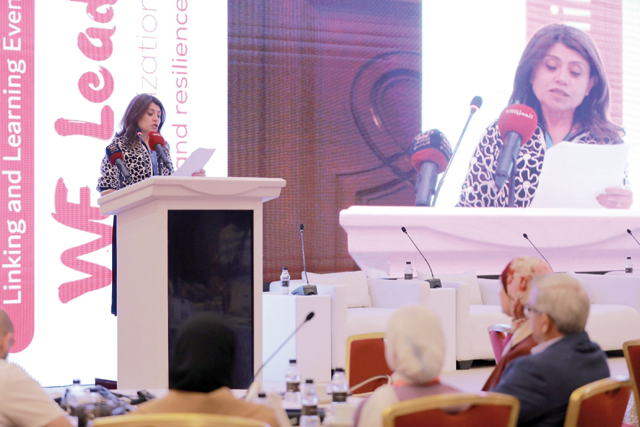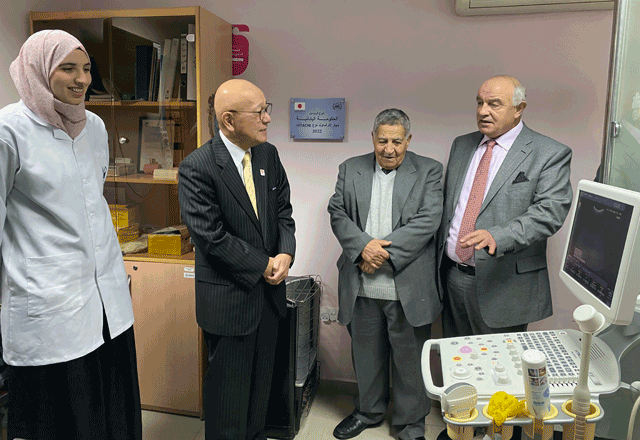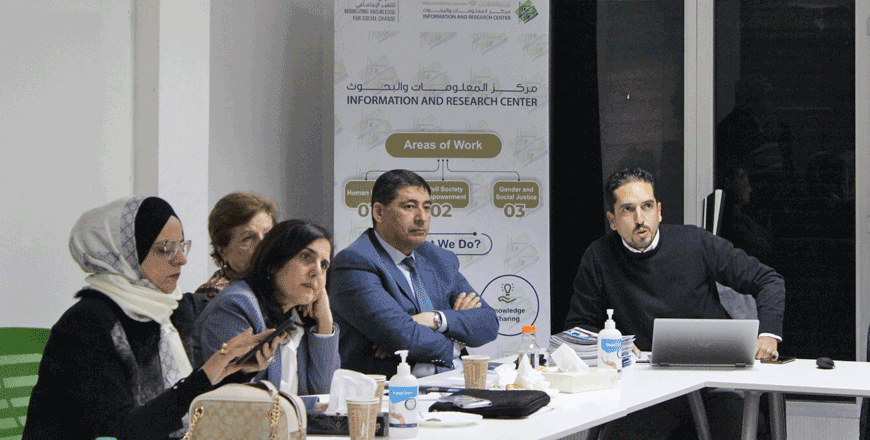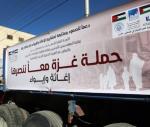You are here
IRCKHF conference highlights proposed health reforms for vulnerable groups in Jordan
By Maria Weldali - Dec 11,2024 - Last updated at Dec 11,2024
AMMAN — In a shift towards promoting health equity and reproductive justice, the Information and Research Centre-King Hussein Foundation (IRCKHF), with the support of an expert advisory committee, on Wednesday presented key proposals aimed at reforming Jordan’s health policies.
The proposals include revisions to the 2004 Maternal, Child, and Family Planning Services regulations, measures to prevent forced hysterectomies for women with disabilities, and the creation of a National AIDS Advisory Committee.
The proposals were unveiled during a conference titled “Strengthening Sexual and Reproductive Health Policies for the Most Vulnerable Groups in Jordan.”
The conference highlighted the urgent need for inclusive sexual and reproductive health services and underscored the importance of addressing the rights of vulnerable populations.
The proposals included amendments to maternal and child health regulations, as well as the introduction of an innovative mechanism to prevent the forced hysterectomy of women with disabilities.
Additionally, the conference introduced the vision of establishing a National AIDS Advisory Committee in Jordan, aiming to strengthen the country’s response to the HIV/AIDS epidemic.
Speaking to The Jordan Times on the sidelines of the conference, IRCKHF Director Ayman Halaseh stressed the consensus reached within the advisory committee, which includes 21 bodies, such as the Ministry of Health (MoH), civil society groups, and experts.
He said that the next steps involve cooperating with the Chief Islamic Justice Department to develop a procedural guide for addressing hysterectomy cases involving women with disabilities.
Meanwhile, the proposed amendments to the regulations are awaiting the Health Minister’s approval to be formally enacted.
Halaseh said, “Around 300 hysterectomy procedures are performed annually on women with disabilities, a practice that is not only a violation of their rights but also amounts to torture and a breach of women’s dignity.”
As for the proposed National AIDS Advisory Committee, Halaseh noted that the committee would be placed under the umbrella of the Ministry of Health to ensure a coordinated, national response to the AIDS crisis.
Secretary-General of the Ministry of Health Raed Shboul highlighted the commitment to transforming these proposals into actionable steps.
"We are determined to turn this vision into concrete measures that will make a real difference for the most vulnerable groups in need of protection and care," he said.
Director of the Woman and Child Health Directorate at the Ministry of Health said, “The ministry is working to update these regulations, which have been in place since 2004. Through the advisory committee, we have proposed a clearer, standardised approach to the guidelines for maternal and child health services.”
Medical policy expert and Deputy Chief Party at USAID Health Services Quality Accelerator (HSQA) Sawsan Majali also highlighted the importance of these amendments: “Implementing these proposed changes at the national level will ensure the sustainability of services and the protection of citizens' rights. Clear regulations also ensure transparency in how the Ministry allocates its budget."
The two-day conference brought together policymakers, health experts, government officials, and civil society advocates to chart a path forward for inclusive healthcare, prioritising the needs of vulnerable and underserved groups.
Related Articles
AMMAN — The Arab Network for Civic Education (ANHRE), organised a conference on Sunday titled “We Lead towards the Realisation of SRHRs and
AMMAN — Japan on Monday donated medical equipment for maternal and child health to the Jordanian Association for Family Planning and Protect
AMMAN — The Information and Research Centre of the King Hussein Foundation (IRCKHF), on Tuesday held a roundtable session to generate recomm


















